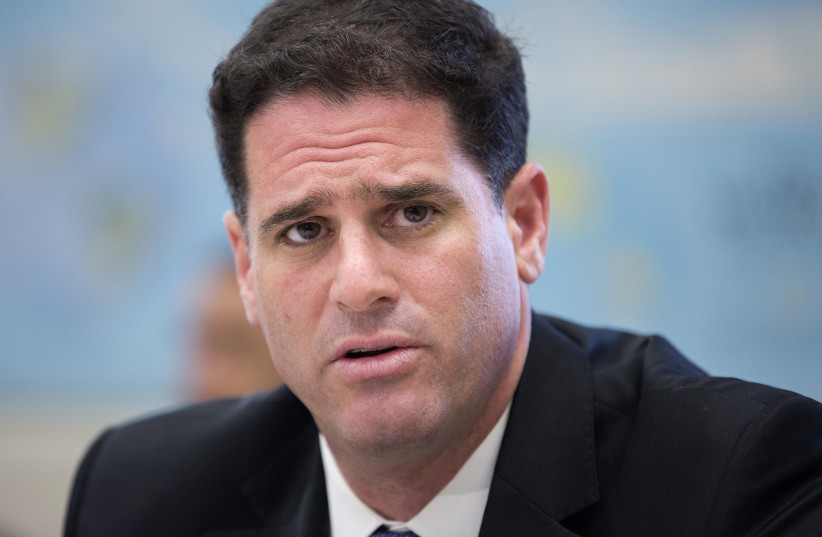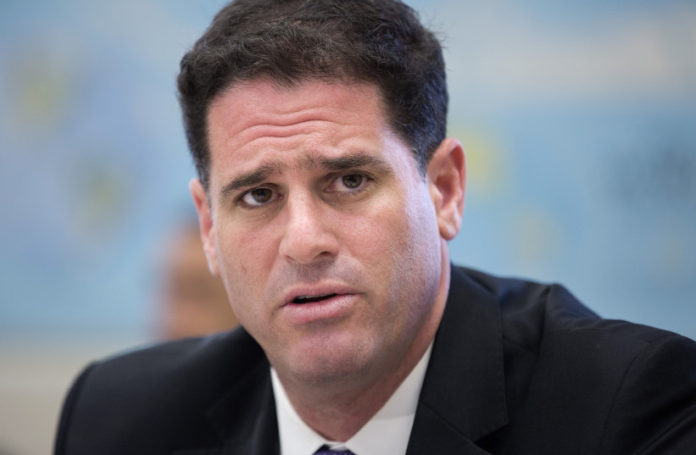
Yizhar Hess did an injustice in the op-ed section of this newspaper and in Makor Rishon on Friday when he called Ron Dermer, Israel’s former ambassador to the US, a “post-Zionist.”
That’s folly.
Like or dislike Dermer, believe he did a standout job during his seven years in Washington, or feel that he brought the Jewish State too close to the Republican party, there can be no doubt that the man is a Zionist. An ardent Zionist; an articulate Zionist; a dedicated Zionist.
During a tenure in Washington that spanned both the Democratic administration (Obama) and the Republican one (Trump), Dermer deserves credit for garnering a slew of decisions and actions that helped make Israel stronger and safer.
Among Dermer’s achievements during the Obama White House was his role in 2014 in getting the administration to allocate $225 million to replenish Iron Dome interceptor missiles after the drawn out Gaza war; and to agree to a 10-year, $38 billion Memorandum of Understanding for future military funding.
During the Trump years, among Dermer’s achievements was his behind-the-scenes role in bringing about normalization agreements with four Arab countries; getting the administration to recognize Jerusalem as Israel’s capital; and securing COVID-19 Pfizer vaccines for Israel.
Post-Zionism, political science professor Shlomo Avineri once wrote, is a radical criticism not just of Israel’s policy but, at its heart, a “total denial of the Zionist project and of the very legitimacy of the existence of the State of Israel as a Jewish nation-state.”
if(window.location.pathname.indexOf(“656089”) != -1){console.log(“hedva connatix”);document.getElementsByClassName(“divConnatix”)[0].style.display =”none”;}
To accuse Dermer of post-Zionism because he suggested at a conference last month that American evangelicals are the core of Israel’s support in the US to whom Jerusalem should be paying more attention, is ludicrous.
Dermer’s comments caused an uproar, and it is possible that he could have done a better job articulating that he did not mean Israel needs to pay attention to Evangelicals at the expense of building ties with US Jews. But to label him a post-Zionist is wrong, especially when considering that there is truth in what he said.
Israel needs to work on its relationship with Diaspora Jewry because they are our brethren, even those American Jews who dislike Israel’s policies.
Just as some American Jews must not write off Israel because they disagree with one Israeli government policy or another, neither should Israel write off American Jews because they may have criticism of one Israeli policy or another. Ultimately, we are brothers bound by a shared history, culture, religion and sense of peoplehood. We need each other.
But Israel also needs Evangelical Christians.
During his interview, Dermer said that Evangelicals were the “backbone” of support for Israel in the US, and he drew criticism for this remark.
But they are. They are numerically huge – about 25% of Americans, if not more, identify as Evangelicals, and many among them support Israel passionately.
Now, it is true that much of American Jewry, which is predominantly liberal, feels uncomfortable allying with Evangelicals because they disagree so sharply on American domestic issues such as abortion and gay rights. But that does not mean that the sovereign Israeli state – which must also look out for its own interests – should not do what it can to cultivate Evangelical support.
To say that Dermer was advocating engaging with one and forgetting the other – “to switch teams and play for the other side, or put his chips on the Evangelicals just because the Jews have become too much of a nuisance” as Hess wrote – is to misrepresent what Dermer said.
Israel, Dermer actually said, conducts outreach to the Jewish community because “that is about the DNA of the state; the raison d’etre of Israel as the Jewish state is to build those connections with Jews throughout the Diaspora… I spent at least as much time doing outreach to Jews as to Christians.”
Israel, Dermer said, gets tremendous political support from Evangelicals, should not take that for granted and should do more outreach to them while “at the same time we have a special connection and an obligation to continue to strengthen the connection with Jews around the world.”
That is not post-Zionism. On the contrary, it is smart, pragmatic Zionism.







